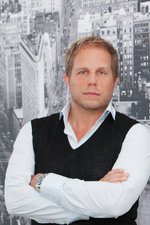
Urban Systems
The key research area of Environment deals primarily with the effects of human activity in urban spaces on the environment and with the effects of climate change on urban living conditions. Scientists and researchers from several disciplines are working together to address these issues at the University of Duisburg-Essen. They are primarily natural scientists from the faculties of Biology, Geography, Chemistry and Physics, but also include research teams from the Faculty of Engineering and the Faculty of Medicine. Their central concerns include fine particle research, urban-rural climatology, water ecology, drinking water treatment and supply (contamination, grading and purification) as well as environmental toxicology and environmental chemistry. Projects currently in progress include "Biological responses to nanoscale particles (SPP 1313)", a German Research Foundation (DFG) programme coordinated by the Center for Water and Environmental Research (ZWU) at the University of Duisburg-Essen, and the EU project "Water Bodies in Europe: Integrative Systems to assess Ecological Status and Recovery (WISER)". Within the framework of the German Federal Ministry of Education and Research (BMBF) project entitled "Dynamic Adaptation of regional planning and development processes to the effects of climate change in the Emscher-Lippe Region (Northern Ruhr Region) (DynAKlim)", two further projects are currently being carried out: "Improving Urban Climates" and "The Development of a Procedure to evaluate Life Cycle Assessment (Climate Gas Emissions and Consumption of Resources)". Another initiative is seeking to test and apply basic principles of climate-friendly urban development in urban agglomerations; this ExWoSt (Experimental Residential Building and Urban Planning) project on urban strategies for dealing with climate change (including local strategies and capacities) is being carried out in close cooperation with builders, planners and the city of Essen.
Landscapers and land developers are collaborating with civil engineers, environmental psychologists and representatives of several local authorities at the ZWU on a BMBF "Klima2" project. They are developing concepts and measures to ensure that future urban design and development are based on water resource awareness; this work primarily addresses the challenge of sustainably adapting regional residential water management to climatic trends and extreme weather.
Intensive collaboration is underway between the University of Duisburg-Essen and associated institutes (the IWW Water Centre and IUTA - Institute of Energy and Environmental Technology) to introduce a further stage in the sewage treatment process at municipal sewage treatment facilities, a research topic of particular relevance to urban areas with high levels of wastewater. This new stage in the sewage treatment process involves the use of powdered activated carbon and ozonation.
Engineers are also developing new concepts and technologies for the sustainable use of renewable energies, such as the effective generation of biogas out of biomass from sewage plant and composting facilities. Applied physicists have developed fibre-optic algae photobioreactors which produce biomass by exposing algae to CO2 emissions (from industrial plant). The production of this industrial biomass is optimised by highly-efficient fibre optics. In future, it will be possible to apply this technology to the process of removing nutrients from wastewater without the additional use of chemicals. The oxygen produced by the algae during this process is beneficial to the breakdown of organic substances by bacteria and thus saves energy otherwise used to power ventilation systems.
An international "Urban Water Cycles" postgraduate programme (German Research Foundation International Research Training Group, currently in planning) is to serve the function of integrating all activities relevant to water resource management. Drafting of the proposal for the programme alone has revealed a diversity of possible links to other research initiatives in the Main Research Area.

